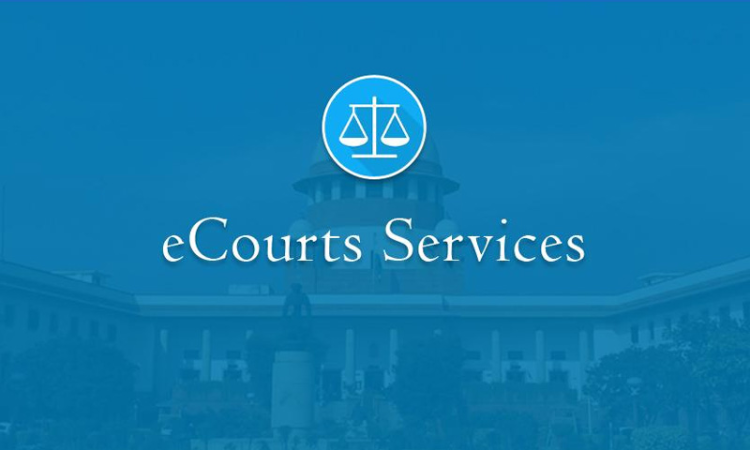E-Courts Services: The Role of Technology in Access to Justice
In the digital age, the evolution of technology has permeated every facet of society, transforming the way we live, work, and interact. One of the most significant transformations has been witnessed in the legal domain, with the advent of E-Court services. E-Courts represent a paradigm shift in the justice delivery system, leveraging technology to streamline court processes, enhance access to justice, and expedite dispute resolution. In this blog, we delve into the world of E-Court services, exploring their functionalities, benefits, and implications for stakeholders in the legal ecosystem.
E-Courts Services
-
Understanding E-Court Services:
E-Court services encompass a range of digital platforms, tools, and systems designed to facilitate electronic court proceedings, case management, and access to judicial services. These services are typically provided through online portals, mobile applications, and electronic platforms, allowing litigants, lawyers, and judicial officers to interact with the court system digitally. Key components of E-Court services include:
- Online Case Filing: Litigants can initiate legal proceedings by filing cases and submitting documents electronically through dedicated E-Court portals, eliminating the need for physical visits to court premises and paper-based filings.
- Digital Case Management: E-Court platforms enable judicial officers to manage case files, schedule hearings, issue notices, and track case progress electronically, enhancing efficiency, transparency, and accountability in court administration.
- Virtual Hearings: E-Courts conduct virtual hearings and proceedings using video conferencing technology, enabling parties, witnesses, and legal representatives to participate remotely from any location with internet access, reducing courtroom congestion and travel time.
- Electronic Evidence Presentation: E-Court systems facilitate the submission and presentation of electronic evidence, documents, and exhibits in digital format, streamlining evidence management and enhancing courtroom efficiency.
-
Benefits of E-Court Services:
The adoption of E-Court services offers numerous benefits for all stakeholders involved in the justice delivery process, including litigants, lawyers, judicial officers, and the public. Some key benefits of E-Court services include:
- Accessibility and Inclusivity: E-Court services enhance access to justice by removing geographical barriers, enabling litigants from remote or underserved areas to file cases, access court services, and participate in legal proceedings online.
- Time and Cost Savings: E-Court platforms reduce the time and cost associated with traditional court processes by automating administrative tasks, expediting case resolution, and minimizing the need for physical court appearances and paperwork.
- Efficiency and Transparency: E-Court systems improve the efficiency and transparency of court proceedings by digitizing case management, streamlining workflow processes, and providing online access to court records, orders, and judgments.
- Convenience and Flexibility: E-Court services offer litigants, lawyers, and judicial officers greater convenience and flexibility in accessing court services, filing documents, and attending hearings remotely, enhancing user satisfaction and engagement.
-
Implications for Legal Practice:
The adoption of E-Court services has significant implications for legal practitioners, requiring them to adapt to digital tools and platforms in their daily practice. Some key implications for legal practice include:
- Digital Case Management: Lawyers need to familiarize themselves with E-Court systems and digital case management tools to effectively navigate court processes, track case updates, and communicate with clients and opposing counsel electronically.
- Virtual Advocacy Skills: Legal practitioners must develop virtual advocacy skills to effectively represent clients in virtual court hearings, presentations, and arguments conducted through video conferencing platforms, ensuring effective communication and presentation of legal arguments.
- Cybersecurity Awareness: Lawyers need to prioritize cybersecurity awareness and data protection measures when handling sensitive client information, documents, and communications through E-Court portals and electronic platforms, safeguarding client confidentiality and privacy.
- Technological Competence: Legal professionals must enhance their technological competence and digital literacy to leverage E-Court services effectively, adopt new legal technologies, and stay abreast of emerging trends and innovations in legal tech.
-
Future Outlook:
The future of E-Court services holds immense promise for transforming the justice delivery landscape, fostering innovation, and promoting access to justice for all. As technology continues to evolve, E-Courts are expected to evolve further, incorporating advanced features such as artificial intelligence (AI), machine learning, and blockchain technology to enhance efficiency, transparency, and accountability in the legal system.
Engage with Dhiti Law Firm:
E-Court services represent a groundbreaking advancement in the field of justice delivery, offering transformative solutions to longstanding challenges and inefficiencies in the legal system. Dhiti Law Firm is committed to leveraging E-Court services and embracing digital transformation to enhance access to justice, streamline legal processes, and deliver efficient and effective legal services to our clients. Contact us today to learn more about how E-Court services can benefit you and how we can assist you in navigating the digital frontier of the legal profession.


